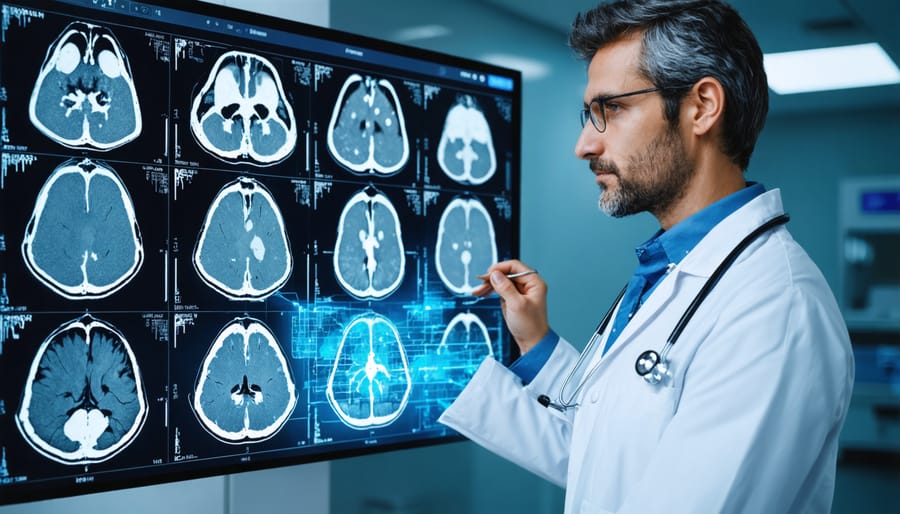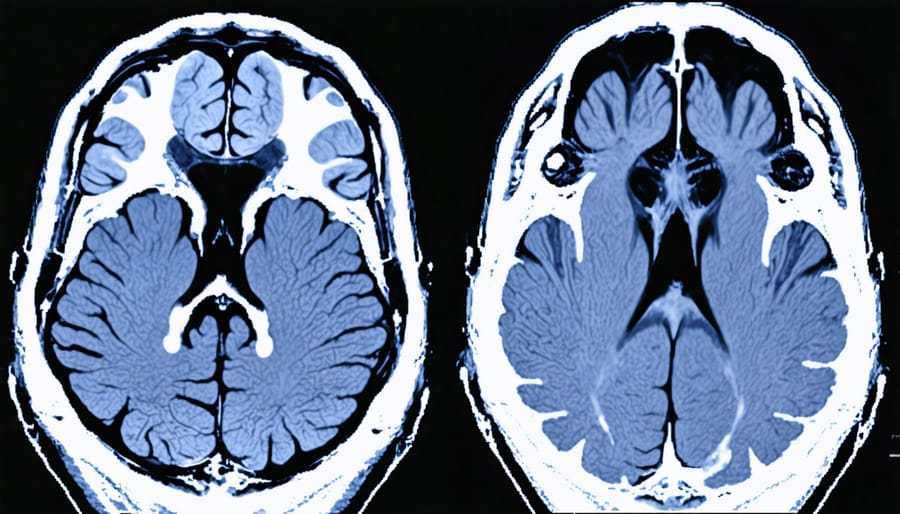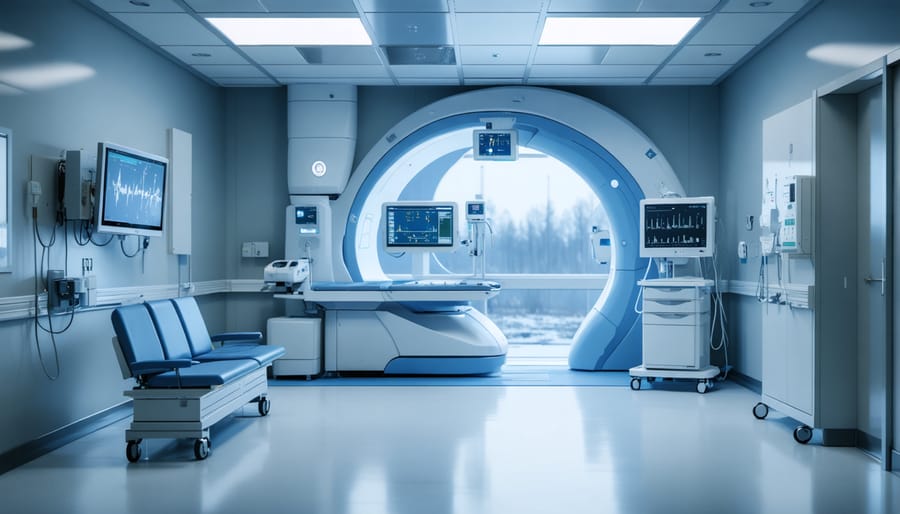Artificial intelligence is revolutionizing healthcare delivery in Alberta and across Canada, offering unprecedented opportunities to improve patient outcomes and streamline medical services. From rapid diagnosis of diseases to personalized treatment plans, AI-powered systems are working alongside healthcare professionals to enhance medical decision-making and patient care. Machine learning algorithms can now analyze medical images, predict health risks, and process vast amounts of patient data in seconds – tasks that would take human practitioners hours or days to complete.
In our local healthcare facilities, AI technologies are already making a difference, helping doctors detect early signs of conditions like cancer, heart disease, and diabetes with greater accuracy. These smart systems support medical professionals by providing data-driven insights while maintaining the essential human touch in patient care. As Alberta’s healthcare system embraces these innovations, patients are experiencing faster diagnoses, more personalized treatment options, and improved access to preventive care services.
This transformation isn’t just about complex technology – it’s about creating a more efficient, accessible, and patient-centered healthcare system for our communities.
How AI is Transforming Medical Diagnostics
Key AI Technologies in Medical Diagnosis
In modern healthcare, three key AI technologies are revolutionizing how doctors diagnose and treat patients. Machine learning helps medical professionals by analyzing large amounts of patient data to identify patterns and make predictions about health conditions. Think of it as a smart assistant that learns from experience, helping doctors spot potential health issues earlier and more accurately.
Deep learning takes this a step further by using complex neural networks that work similarly to the human brain. These systems can process vast amounts of medical information and learn to recognize subtle signs of disease that might be missed by the human eye. For example, in Alberta’s healthcare facilities, deep learning systems are helping radiologists analyze medical images more efficiently.
Image recognition technology is particularly powerful in medical diagnosis. It can analyze X-rays, MRIs, and CT scans to detect abnormalities like tumors, fractures, or signs of conditions like pneumonia. This technology acts as a second set of eyes for healthcare providers, helping them make more accurate diagnoses and develop better treatment plans.
These AI tools don’t replace healthcare professionals – instead, they work alongside them to improve accuracy and speed up diagnosis. For patients, this means potentially faster, more accurate diagnoses and better health outcomes. As these technologies continue to develop, they’re becoming increasingly important tools in our local healthcare system, supporting both doctors and patients in making better-informed medical decisions.

Real-World Applications of AI in Medical Diagnosis
Medical Imaging Analysis
AI has revolutionized how healthcare providers analyze medical images, making diagnosis faster and more accurate. When you get an X-ray, MRI, or CT scan in Alberta’s hospitals and clinics, AI technology can help radiologists spot potential health issues that might be difficult to detect with the human eye alone.
These AI systems are trained on millions of medical images, learning to recognize patterns that indicate various conditions. For example, in chest X-rays, AI can help detect early signs of lung cancer, pneumonia, or heart problems. With mammograms, AI assists in identifying potential breast cancer markers that might otherwise be missed.
The technology doesn’t replace healthcare professionals but works alongside them as a powerful tool. Think of it as a second set of highly trained eyes that can process images in seconds, highlighting areas that need closer examination. This helps your healthcare team make more informed decisions about your care while reducing the chance of missed diagnoses.
In Alberta’s medical centers, this technology is helping to speed up diagnosis times and improve accuracy, especially in remote communities where specialist radiologists might not be immediately available.

Early Disease Detection
One of AI’s most remarkable contributions to healthcare is its ability to detect diseases earlier than traditional methods. Using advanced pattern recognition and machine learning, AI systems can analyze medical images, lab results, and patient data to identify subtle signs of developing conditions that might escape human observation.
In Alberta’s healthcare facilities, AI-powered tools are helping doctors spot potential heart problems by analyzing ECG readings and identifying irregular patterns that could indicate future cardiac issues. These systems work alongside radiologists to examine mammograms and chest X-rays, often detecting early-stage cancers that might be difficult to spot with the human eye alone.
The technology is particularly powerful when combined with personalized healthcare through DNA analysis, enabling healthcare providers to identify genetic risk factors and develop preventive strategies tailored to each patient. This means Albertans can receive more timely interventions and better health outcomes.
For conditions like diabetes and heart disease, AI algorithms can predict potential complications by analyzing patterns in blood sugar levels, blood pressure readings, and other vital signs, allowing for preventive measures before serious symptoms develop.
Laboratory Results Interpretation
AI is revolutionizing how healthcare providers interpret laboratory results, making the process faster and more accurate. When your doctor orders blood work or other tests, AI algorithms can quickly analyze thousands of data points, identifying patterns that might be missed by human eyes alone. These smart systems can flag potential issues, compare results against vast databases of medical information, and even predict health trends based on your genetic health factors and previous test results.
For Albertans, this means getting test results back more quickly and with greater accuracy. AI can help detect early warning signs of conditions like diabetes, heart disease, and kidney problems by spotting subtle changes in your lab values over time. It’s like having an extra set of highly trained eyes reviewing your results, working alongside your healthcare team to ensure nothing important is overlooked.

Benefits for Alberta’s Healthcare System
Alberta’s healthcare system is experiencing a significant transformation through AI implementation, bringing numerous benefits to patients and healthcare providers across the province. At major facilities like the University of Alberta Hospital and Calgary’s Foothills Medical Centre, AI technologies are streamlining patient care and improving diagnostic accuracy.
One of the most notable advantages is reduced wait times for medical imaging results. AI-powered systems can analyze X-rays, MRIs, and CT scans much faster than traditional methods, helping Albertans receive their diagnoses sooner. This is particularly valuable in rural communities, where AI-assisted remote diagnostics are helping bridge the healthcare access gap.
The integration of AI with electronic health records is making it easier for healthcare providers to identify patterns and predict potential health issues before they become serious. Combined with DNA-based health insights, this technology is enabling more personalized treatment plans for Albertans.
Cost savings are another significant benefit, as AI helps reduce unnecessary tests and procedures while improving resource allocation. Alberta Health Services estimates that AI implementation could lead to annual savings of millions of dollars, which can be reinvested in patient care and new medical technologies.
For chronic disease management, AI-powered monitoring systems are helping Albertans better manage their conditions from home, reducing hospital visits and improving quality of life through early intervention and personalized care recommendations.
Artificial intelligence is revolutionizing healthcare diagnostics in Alberta and around the world, offering new hope for earlier disease detection and more accurate treatment plans. The integration of AI technologies has already shown remarkable results in improving diagnostic accuracy, reducing wait times, and helping healthcare providers make more informed decisions.
As we look to the future, AI’s role in healthcare will continue to expand, with emerging technologies making healthcare more accessible and personalized for Albertans. From analyzing medical imaging to predicting health risks before they become serious issues, AI is becoming an invaluable tool in our healthcare system.
While AI won’t replace healthcare professionals, it will enhance their ability to provide better care. For patients, this means more accurate diagnoses, faster test results, and more personalized treatment plans. The combination of human expertise and AI capabilities is creating a more efficient and effective healthcare system that benefits everyone.
As our community embraces these technological advances, we can look forward to more preventive care opportunities, reduced healthcare costs, and improved health outcomes for all Albertans.

